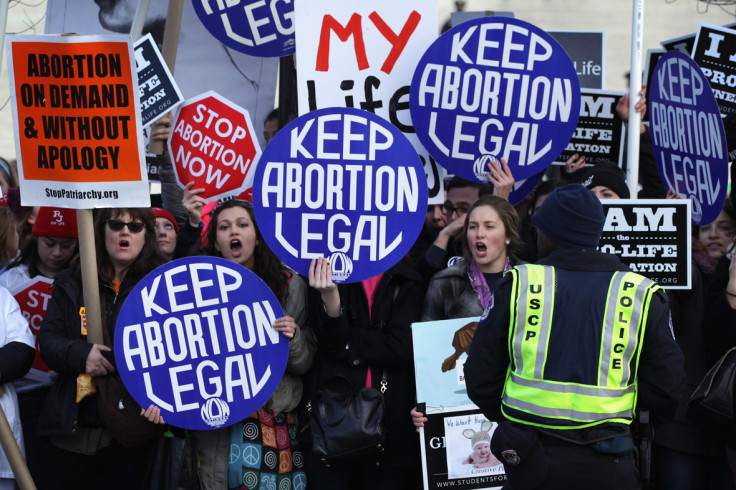Donald Trump tweets support for March for Life anti-abortion demonstration
The support follows the signing of an anti-abortion order three days after Trump's inauguration.
President Donald Trump tweeted support for anti-abortion rally, the so-called March for Life, on Friday (27 January), as Mike Pence became the first sitting US vice-president to address the rally.
The show of support comes less than a week after the new president was dismissive of the Women's March on Washington which took place a day after his inauguration.
In a series of tweets, Trump expressed support for the march, stating: "The #MarchForLife is so important. To all of you marching – you have my full support!" adding, ".@VP Mike Pence will be speaking at today's #MarchForLife – You have our full support!"
At the rally, Pence told the crowd: "Life is winning in America."
The support follows Trump's signing an order to ban government funding for American NGOs that express support for abortion even outside of the US. The ruling, made on Monday (23 January) is feared by many to be the first of many against abortion in the US.
Ahead of Friday's march, Trump told ABC he expected the event to have a bigger draw than the Women's March on Washington held six days earlier. No attendance figures were immediately available following the march.
According to the Women's March's organisers, their event drew a crowd of one million people in Washington DC. However, other estimates stand at around half that figure.
This compares to estimates of crowds at Trump's own inauguration ceremony, held the week before, of around 250,000 – just half the number.
The #MarchForLife is so important. To all of you marching --- you have my full support!
— Donald J. Trump (@realDonaldTrump) January 27, 2017
Sister marches also took place across the world, with an estimated 100,000 turning out in London. More than 600 marches took place across the US and the rest of the world. After the march, Trump tweeted: "Watched protests yesterday but was under the impression that we'd just had an election! Why didn't these people vote?"
Some hours later, a more measured response was tweeted from Trump's official account: "Peaceful protests are a hallmark of our democracy. Even if I don't always agree, I recognize the rights of people to express their views."
Watched protests yesterday but was under the impression that we just had an election! Why didn't these people vote? Celebs hurt cause badly.
— Donald J. Trump (@realDonaldTrump) January 22, 2017
The march was conceived as a grassroots movement in response to growing concern for women's rights, as well as human rights more generally after a bitterly divisive presidential election campaign. Organisers of the Women's March on Washington said ahead of the march that the event was not intended as an anti-Trump rally, specifically, rather as a "proactive" stand for women's rights.
A statement on the Women's March website read: "The Women's March on Washington will send a bold message to our new government on their first day in office, and to the world that women's rights are human rights."

© Copyright IBTimes 2025. All rights reserved.






















